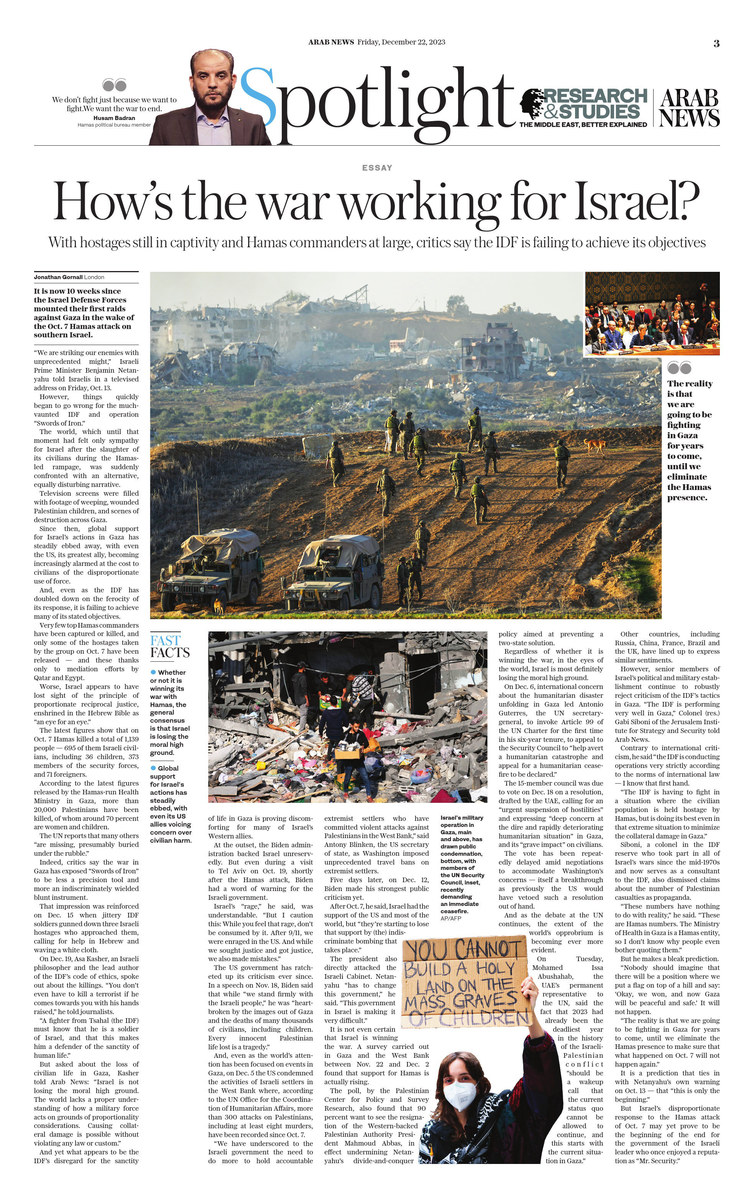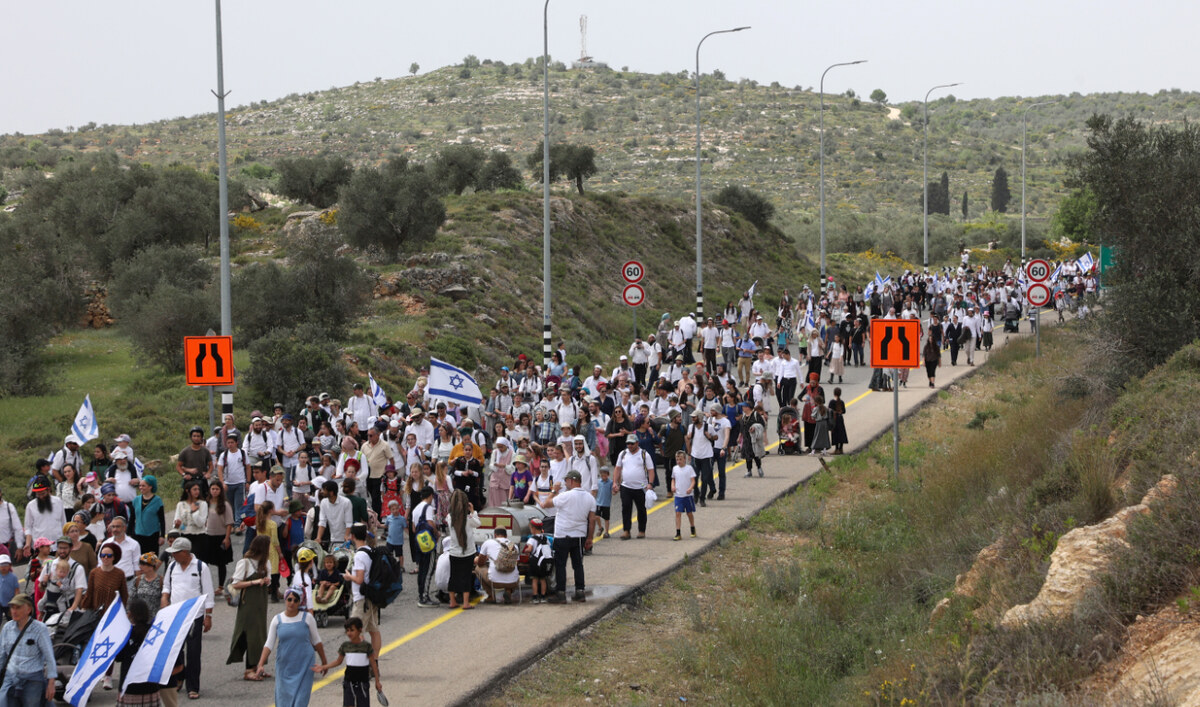LONDON: It is now 10 weeks since the Israel Defense Forces mounted their first raids against Gaza in the wake of the Oct. 7 Hamas attack on southern Israel.
“We are striking our enemies with unprecedented might,” Israeli Prime Minister Benjamin Netanyahu told Israelis in a televised address on Friday, Oct. 13.
However, things quickly began to go wrong for the much-vaunted IDF and operation “Swords of Iron.”
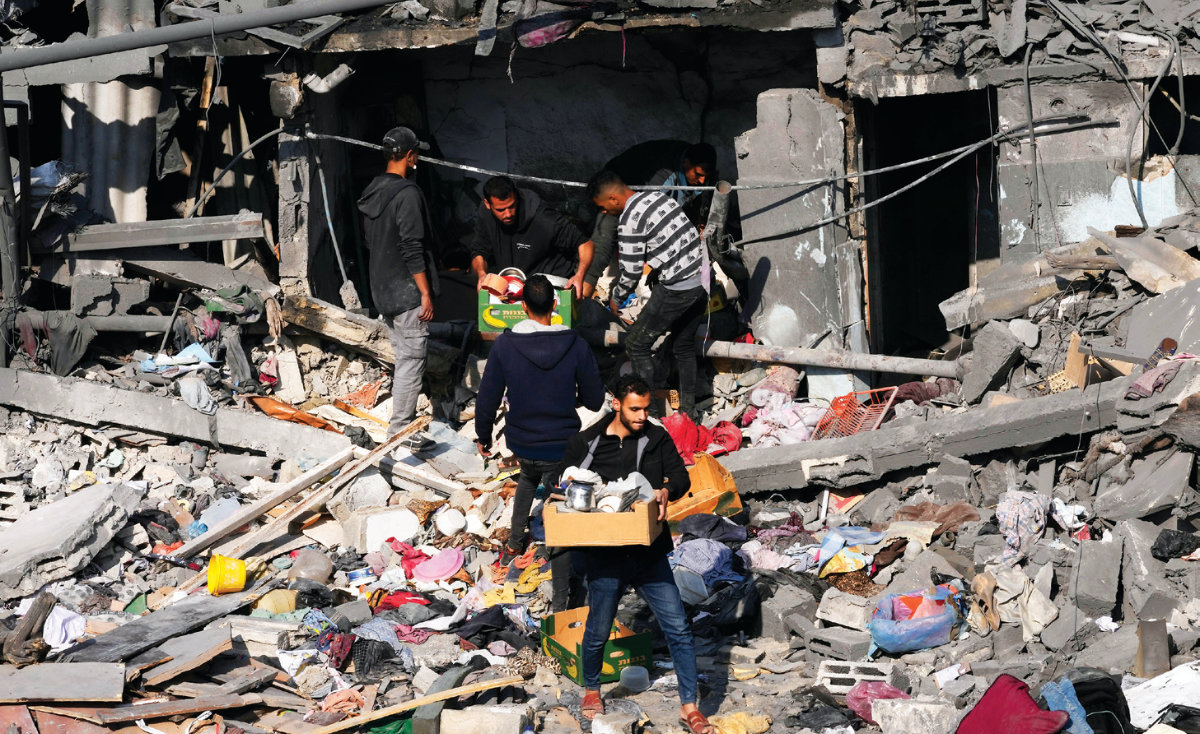
Palestinians salvage belongings from the destroyed Al-Gatshan family building after an Israeli strike in Nusseirat refugee camp, central Gaza Strip, on Dec. 18, 2023. (AP Photo/Adel Hana)
The world, which until that moment had felt only sympathy for Israel after the slaughter of its civilians during the Hamas-led rampage, was suddenly confronted with an alternative, equally disturbing narrative.
Television screens were filled with footage of weeping, wounded Palestinian children, and scenes of destruction across Gaza.
Since then, global support for Israel’s actions in Gaza has steadily ebbed away, with even the US, its greatest ally, becoming increasingly alarmed at the cost to civilians of the disproportionate use of force.
And, even as the IDF has doubled down on the ferocity of its response, it is failing to achieve many of its stated objectives.
Very few top Hamas commanders have been captured or killed, and only some of the hostages taken by the group on Oct. 7 have been released — and these thanks only to mediation efforts by Qatar and Egypt.
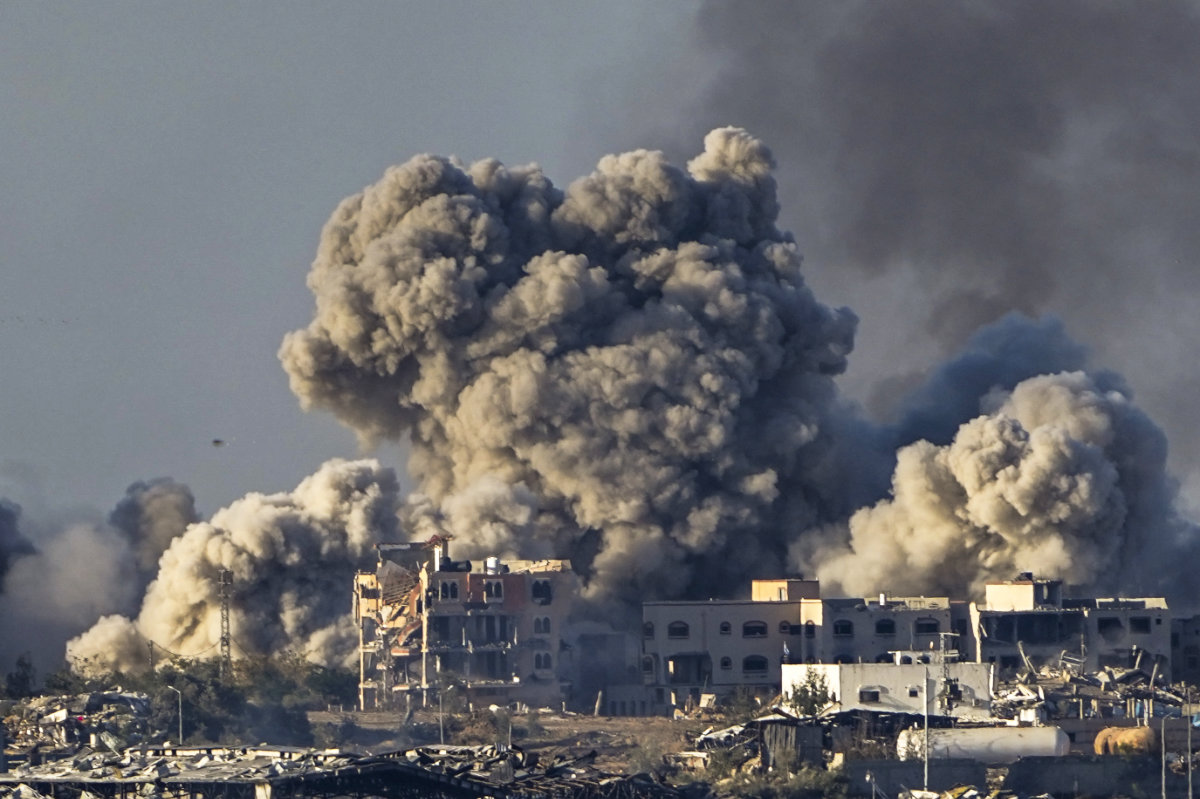
Smoke rises following an Israeli bombardment in the Gaza Strip, as seen from southern Israel, on Dec. 16, 2023. (AP)
Worse, Israel appears to have lost sight of the principle of proportionate reciprocal justice, enshrined in the Hebrew Bible as “an eye for an eye.”
The latest figures show that on Oct. 7 Hamas killed a total of 1,139 people — 695 of them Israeli civilians, including 36 children, 373 members of the security forces, and 71 foreigners.
According to the latest figures released by the Hamas-run Health Ministry in Gaza, more than 20,000 Palestinians have been killed, of whom around 70 percent are women and children.
The UN reports that many others “are missing, presumably buried under the rubble.”
Indeed, critics say the war in Gaza has exposed “Swords of Iron” to be less a precision tool and more an indiscriminately wielded blunt instrument.
That impression was reinforced on Dec. 15 when jittery IDF soldiers gunned down three Israeli hostages who approached them, calling for help in Hebrew and waving a white cloth.
On Dec. 19, Asa Kasher, an Israeli philosopher and the lead author of the IDF’s code of ethics, spoke out about the killings. “You don’t even have to kill a terrorist if he comes towards you with his hands raised,” he told journalists.
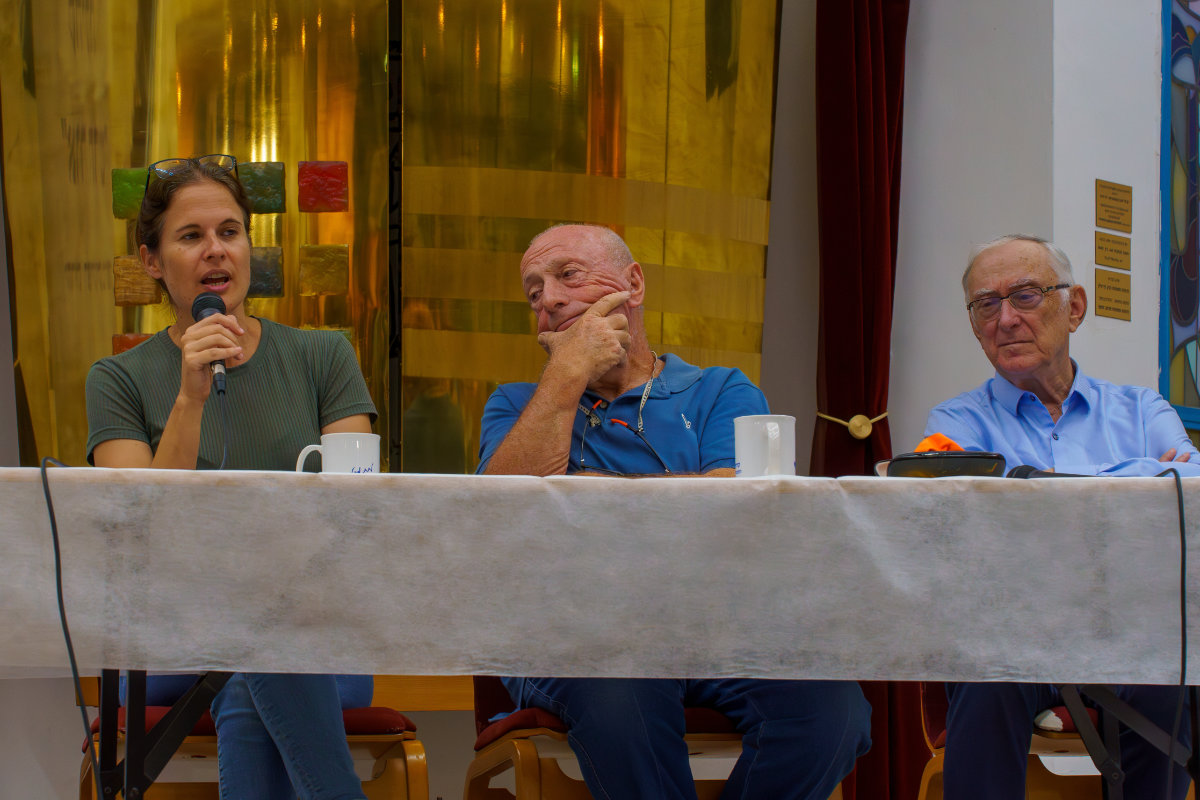
Prof. Asa Kasher (middle), together with Prof. Shikma Bressler (left) and General Uri Sagi, attend a meeting in Haifa on October 24, 2023, to talk about leadership in war time, amid Israel's war on Gaza. (Shutterstock)
“A fighter from Tsahal (the IDF) must know that he is a soldier of Israel, and that this makes him a defender of the sanctity of human life.”
But asked about the loss of civilian life in Gaza, Kasher told Arab News: “Israel is not losing the moral high ground. The world lacks a proper understanding of how a military force acts on grounds of proportionality considerations. Causing collateral damage is possible without violating any law or custom.”
And yet what appears to be the IDF’s disregard for the sanctity of life in Gaza is proving discomforting for many of Israel’s Western allies.
At the outset, the Biden administration backed Israel unreservedly. But even during a visit to Tel Aviv on Oct. 19, shortly after the Hamas attack, Biden had a word of warning for the Israeli government.
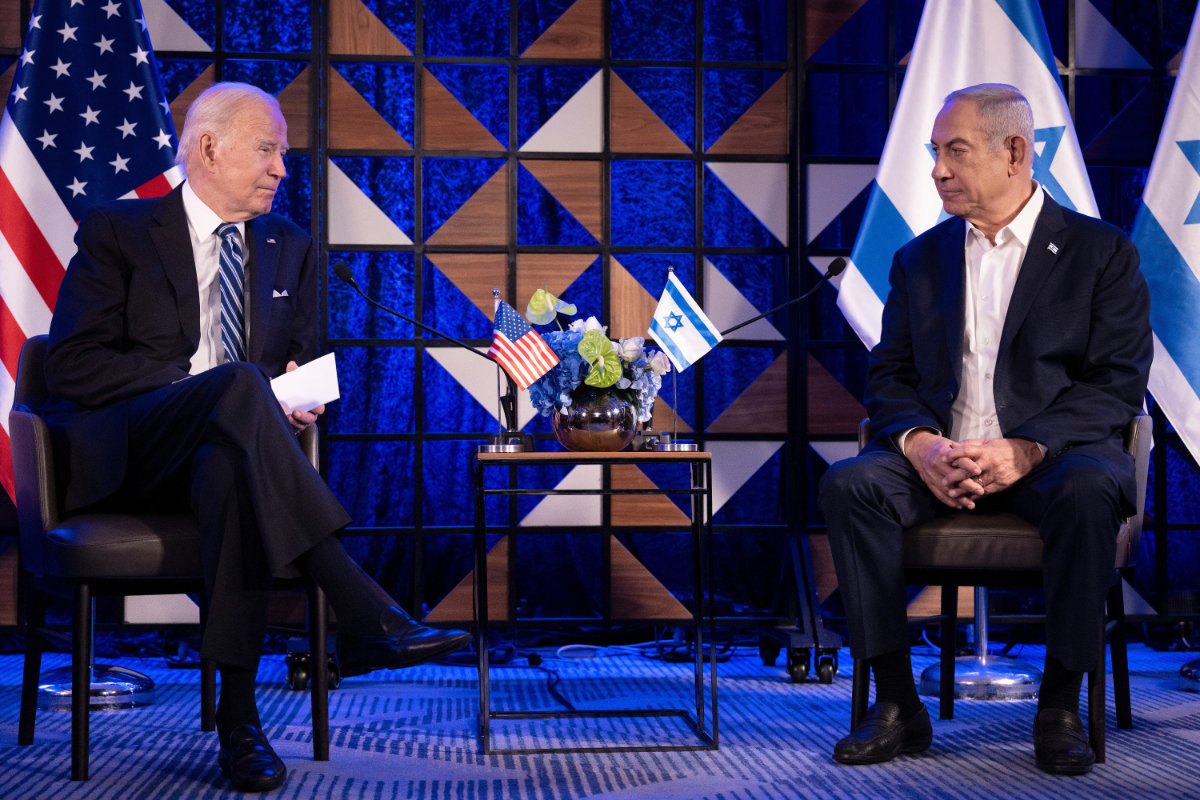
US President Joe Biden (L) meets with Israel's Prime Minister Benjamin Netanyahu in Tel Aviv on October 18, 2023, amid the ongoing battles between Israel and the Palestinian group Hamas. (AFP/File)
Israel’s “rage,” he said, was understandable. “But I caution this: While you feel that rage, don’t be consumed by it. After 9/11, we were enraged in the US. And while we sought justice and got justice, we also made mistakes.”
The US government has ratcheted up its criticism ever since. In a speech on Nov. 18, Biden said that while “we stand firmly with the Israeli people,” he was “heartbroken by the images out of Gaza and the deaths of many thousands of civilians, including children. Every innocent Palestinian life lost is a tragedy.”
And, even as the world’s attention has been focused on events in Gaza, on Dec. 5 the US condemned the activities of Israeli settlers in the West Bank where, according to the UN Office for the Coordination of Humanitarian Affairs, more than 300 attacks on Palestinians, including at least eight murders, have been recorded since Oct. 7.
“We have underscored to the Israeli government the need to do more to hold accountable extremist settlers who have committed violent attacks against Palestinians in the West Bank,” said Antony Blinken, the US secretary of state, as Washington imposed unprecedented travel bans on extremist settlers.
Five days later, on Dec. 12, Biden made his strongest public criticism yet.
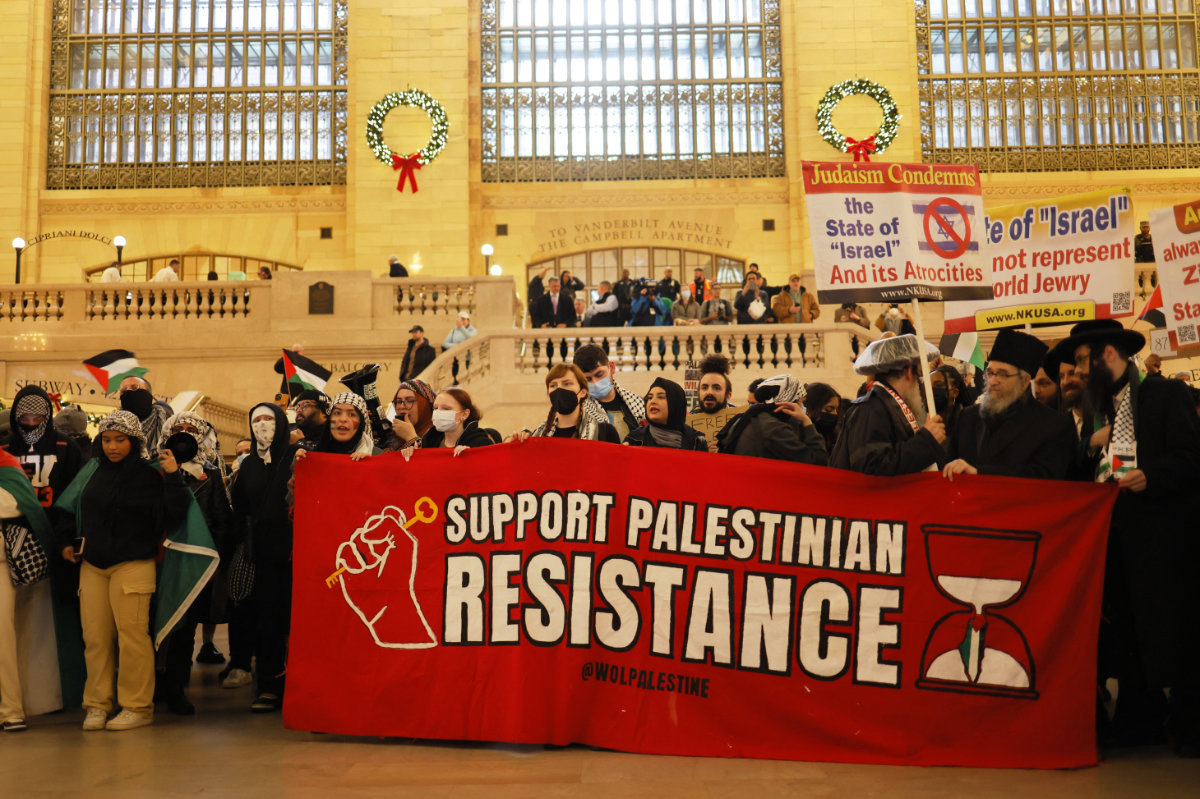
Pro-Palestine Jewish activists gather in New York City's Grand Central Station to participate in a Global Strike for Gaza on December 18, 2023. (Getty Images/AFP)
After Oct. 7, he said, Israel had the support of the US and most of the world, but “they’re starting to lose that support by (the) indiscriminate bombing that takes place.”
The president also directly attacked the Israeli cabinet. Netanyahu “has to change this government,” he said. “This government in Israel is making it very difficult.”
It is not even certain that Israel is winning the war. A survey carried out in Gaza and the West Bank between Nov. 22 and Dec. 2 found that support for Hamas is actually rising.
The poll, by the Palestinian Center for Policy and Survey Research, also found that 90 percent want to see the resignation of the Western-backed Palestinian Authority President Mahmoud Abbas, in effect undermining Netanyahu’s divide-and-conquer policy aimed at preventing a two-state solution.

Palestinian President Mahmud Abbas (C) holds hands with Belgium's Prime Minister Alexander De Croo (R) and Spain's Prime Minister Pedro Sanchez during their meeting in the occupied West Bank city of Ramallah on November 23, 2023. (POOL / AFP)
Regardless of whether it is winning the war, in the eyes of the world, Israel is most definitely losing the moral high ground.
On Dec. 6, international concern about the humanitarian disaster unfolding in Gaza led Antonio Guterres, the UN secretary-general, to invoke Article 99 of the UN Charter for the first time in his six-year tenure, to appeal to the Security Council to “help avert a humanitarian catastrophe and appeal for a humanitarian ceasefire to be declared.”
The 15-member council was due to vote on Dec. 18 on a resolution, drafted by the UAE, calling for an “urgent suspension of hostilities” and expressing “deep concern at the dire and rapidly deteriorating humanitarian situation” in Gaza, and its “grave impact” on civilians.
The vote has been repeatedly delayed amid negotiations to accommodate Washington’s concerns — itself a breakthrough as previously the US would have vetoed such a resolution out of hand.
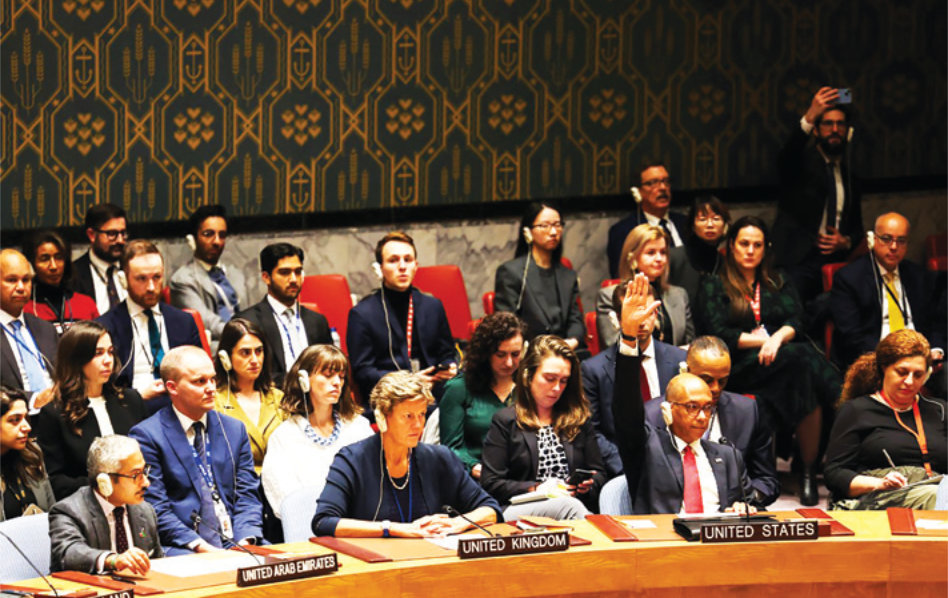
US Deputy Ambassador to the UN Robert Wood (2nd R) raises his hand during a United Nations Security Council after the vote about a ceasefire in Gaza at UN headquarters in New York on December 8, 2023. (AFP/File)
And as the debate at the UN continues, the extent of the world’s opprobrium is becoming ever more evident.
On Tuesday, Vassily Nebenzia, Russia’s permanent representative to the UN, pleading on behalf of “the victims of the indiscriminate Israeli actions,” pointed out that Israel had dropped some 29,000 bombs on Gaza, similar to the total number dropped on Iraq in the whole of 2003 by the US and UK.
For Mohamed Issa Abushahab, the UAE’s permanent representative to the UN, the fact that 2023 had already been the deadliest year in the history of the Israeli-Palestinian conflict “should be a wakeup call that the current status quo cannot be allowed to continue, and this starts with the current situation in Gaza.”
Other countries, including China, France, Brazil and the UK, have lined up to express similar sentiments.
However, senior members of Israel’s political and military establishment continue to robustly reject criticism of the IDF’s tactics in Gaza.
“The IDF is performing very well in Gaza,” Colonel (res.) Gabi Siboni of the Jerusalem Institute for Strategy and Security told Arab News.
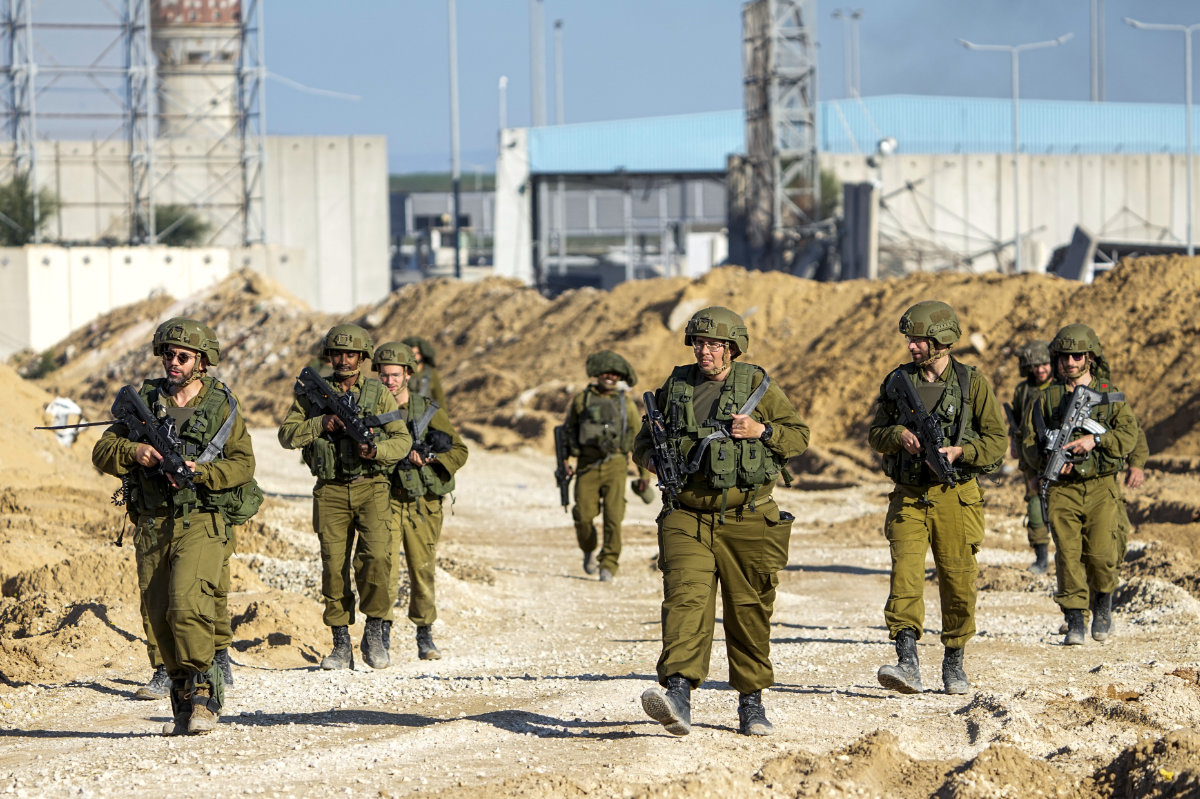
Israeli soldiers are seen during a ground operation in the northern Gaza Strip on Dec. 15, 2023. (AP)
Contrary to international criticism, he said “the IDF is conducting operations very strictly according to the norms of international law — I know that first hand.
“The IDF is having to fight in a situation where the civilian population is held hostage by Hamas, but is doing its best even in that extreme situation to minimize the collateral damage in Gaza.”
Siboni, a colonel in the IDF reserve who took part in all of Israel’s wars since the mid-1970s and now serves as a consultant to the IDF, also dismissed claims about the number of Palestinian casualties as propaganda.
“These numbers have nothing to do with reality,” he said. “These are Hamas numbers. The ministry of health in Gaza is a Hamas entity, so I don’t know why people even bother quoting them.”
But he makes a bleak prediction.
“Nobody should imagine that there will be a position where we put a flag on top of a hill and say: ‘Okay, we won, and now Gaza will be peaceful and safe.’ It will not happen.
“The reality is that we are going to be fighting in Gaza for years to come, until we eliminate the Hamas presence to make sure that what happened on Oct. 7 will not happen again.”
It is a prediction that ties in with Netanyahu’s own warning on Oct. 13 — that “this is only the beginning.”
But Israel’s disproportionate response to the Hamas attack of Oct. 7 may yet prove to be the beginning of the end for the government of the Israeli leader who once enjoyed a reputation as “Mr Security.”
